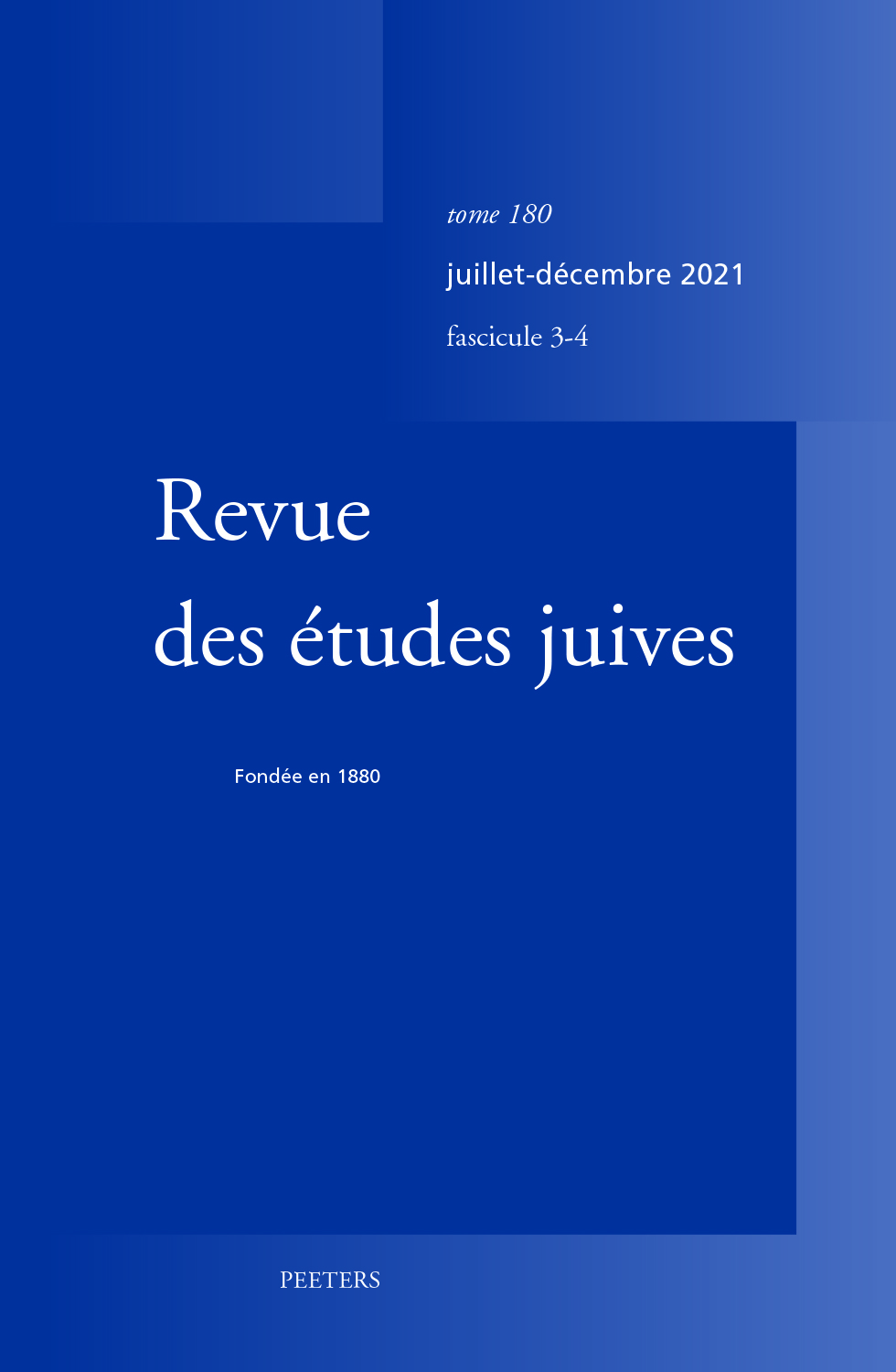 previous article in this issue previous article in this issue | next article in this issue  |

Preview first page |
Document Details : Title: «Shubi shubi ha-Shulamit» Subtitle: L'allégorie d'amour dans la poésie hébraïque sur l'âme de l'Âge d'or andalou Author(s): DAHAN, Éric Journal: Revue des Études Juives Volume: 171 Issue: 3-4 Date: juillet-décembre 2012 Pages: 285-324 DOI: 10.2143/REJ.171.3.2184707 Abstract : L’une des innovations de la poésie hébraïque à l’Âge d’or andalou réside dans l’apparition de poèmes centrés sur l’âme, son origine et sa destinée, selon un schéma conceptuel néoplatonicien. La signification du vocabulaire amoureux utilisé dans ces poèmes, qui a pour source le Cantique des cantiques, paraît être une réinterprétation néoplatonicienne du sens allégorique de ce livre. À l’explication traditionnelle, l’histoire nationale d’Israël, exilé de son pays, malmené dans le présent et aspirant à un retour futur, se superpose une nouvelle explication, selon laquelle le Cantique traiterait de la destinée de l’âme, depuis l’exil de sa source céleste, l’emprisonnement dans le corps et l’aspiration à retourner vers son lieu originel. Nous apportons des arguments dans le sens d’une réinterprétation du Cantique et nous dégageons les principaux caractères de cette nouvelle allégorie à travers l’étude des poèmes consacrés à l’âme de Juda Halévi et Moïse Ibn Ezra, en examinant tout particulièrement la terminologie amoureuse et les emprunts au Cantique choisis par les poètes, enfin, en constatant l’existence de poèmes à double lecture, à la fois nationale et traitant de l’âme. En conclusion nous examinons le lien éventuel entre cette réinterprétation du Cantique à l’Âge d’or andalou et le premier ouvrage connu, composé par Joseph Ibn Aqnin, traitant du Cantique des cantiques selon une approche philosophique. One of the innovations of Hebrew poetry in the Golden Age of Andalusia is the appearance of poems centered on the soul, its origin and destiny, according to a Neoplatonic conceptual pattern. This article starts with the observation that there is often a vocabulary of love in these poems, whose source is the Song of Songs, and whose meaning seems to be an allegorical reinterpretation of this book in a Neoplatonic sense. On the traditional explanation, the national history of Israel, exiled from its country, abused at the present time and aspiring to a future return, is superimposed a new explanation: that the Song deals with the destiny of the soul, since the exile from its heavenly source, the imprisonment in the body and the longing to return to its original place. We shall provide arguments in the sense of a reinterpretation of the Song and we shall bring out the main characteristics of this new allegory through the study of the poems written by Judah Halevi and Moses ibn Ezra devoted to the soul by examining more specifically the terminology of love and the borrowings from the Song chosen by the poets, and finally by observing the existence of poems with a double reading, both national and dealing with the soul. To conclude, we shall try to identify the possible link between this reinterpretation of the Song in the Golden Age of Andalusia and the first known work dealing with the Song of Solomon according to a philosophical approach, by Joseph Ibn Aqnin. |
|


